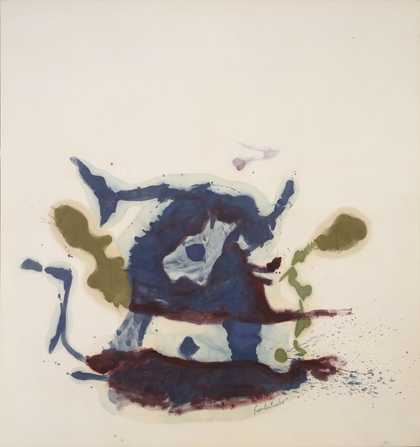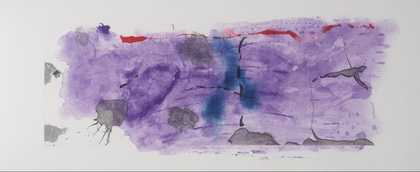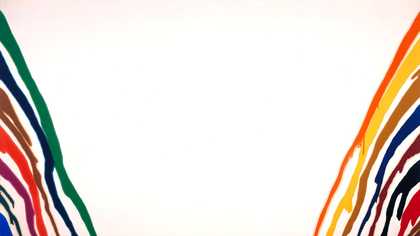Discover the works of a leading abstract painter of the post-war period
Helen Frankenthaler (1928–2011) was born in New York and spent most of her life there. Trained as a student in modern painting, she encountered the work of abstract expressionist painters early in the 1950s. The work of Jackson Pollock, in particular, had a profound effect on the direction of her own painting.
In 1952 Frankenthaler began to develop her ‘soak-stain’ technique. She thinned oil paint to the consistency of watercolour and poured it onto raw canvas laid on the studio floor. This allowed her to create pools and lines of paint. She then used brushes and other tools to produce washes of colour. This technique expanded the possibilities of abstraction and influenced many subsequent artists. It played an important role in the transition from abstract expressionism’s emphasis on individual brush strokes to the development of a style based on large, thinly applied areas of colour. This later became known as colour field painting.
The display features works from the first three decades of Frankenthaler’s career. The Sightseers 1951 is the earliest on show. It stems from the fragmented, abstract, cubist style in which she was trained. She created Eden 1956, Europa 1957 and Vessel 1961 using the ‘soak-stain’ technique. These paintings reveal a range of approaches and sources. Eden loosely references landscape with recognisable imagery, while the densely painted Europa is inspired by a work by the sixteenth-century Italian Renaissance painter, Titian. The latest work, M 1977, was painted in acrylic rather than oil and makes clear Frankenthaler’s shift from gestural abstraction to paintings characterised by larger areas of solid colour with complex gradations of tone.
The works in this display have been generously lent by the Helen Frankenthaler Foundation, New York.
Tate Modern



